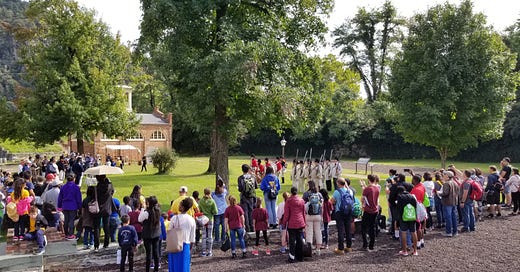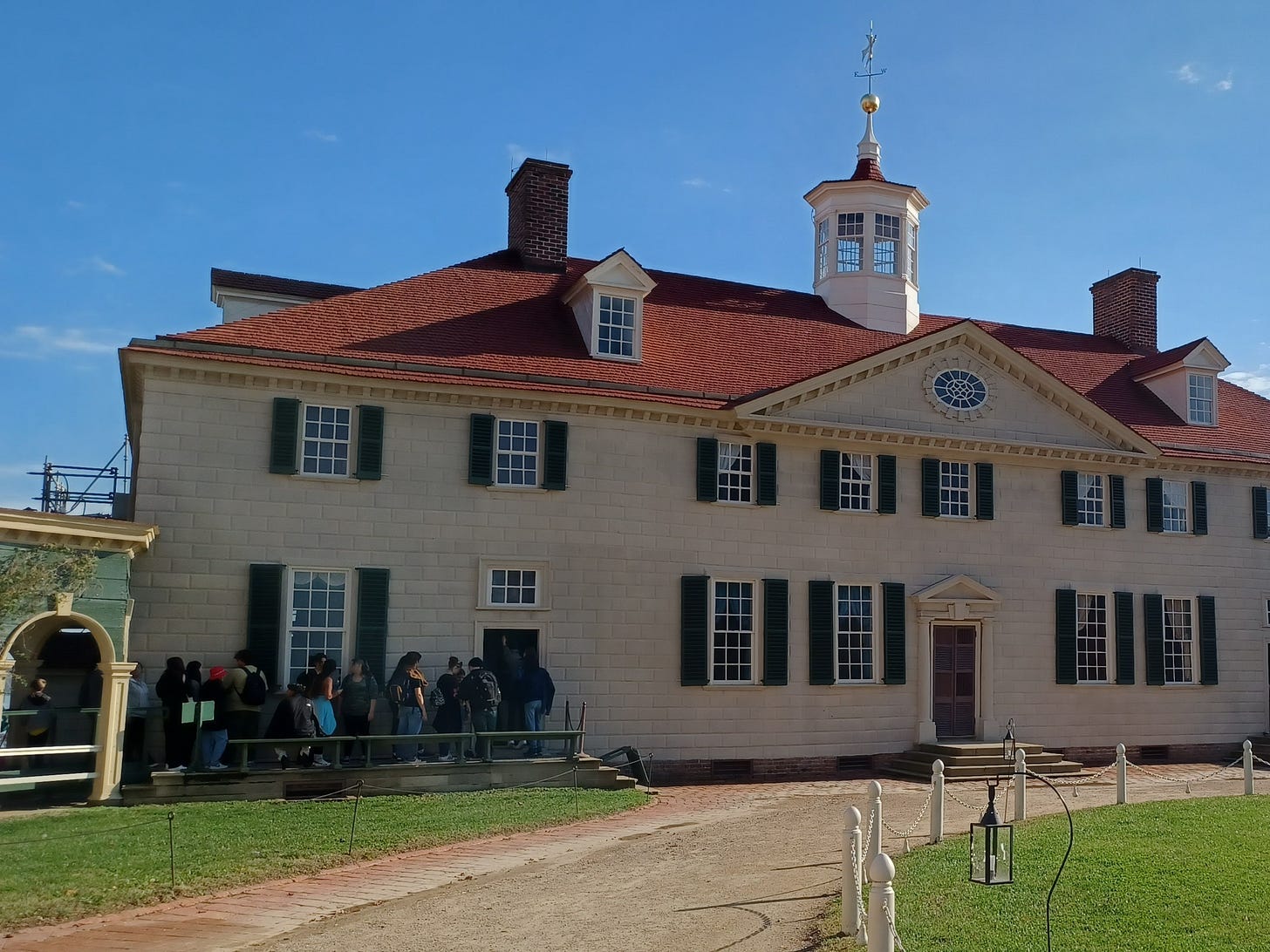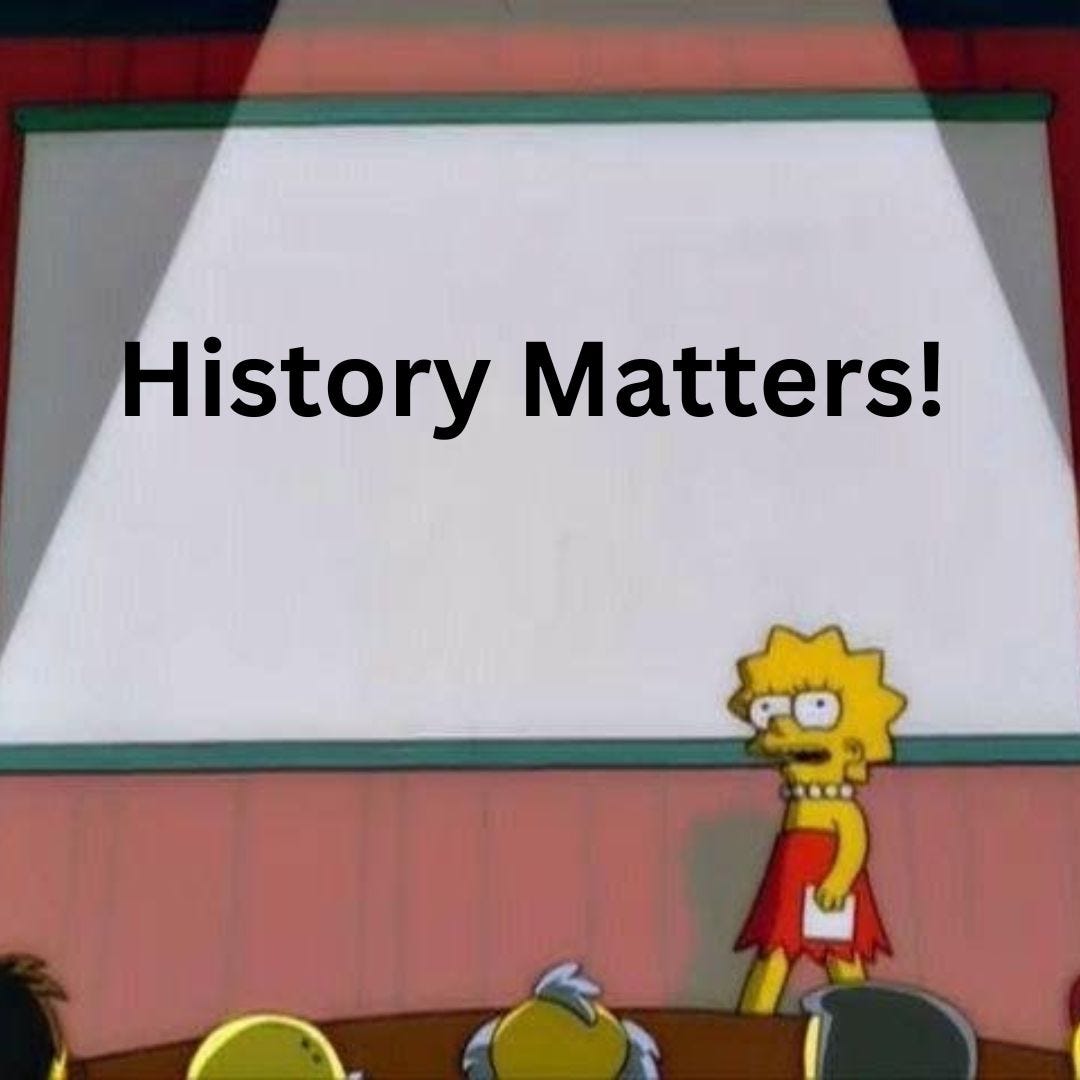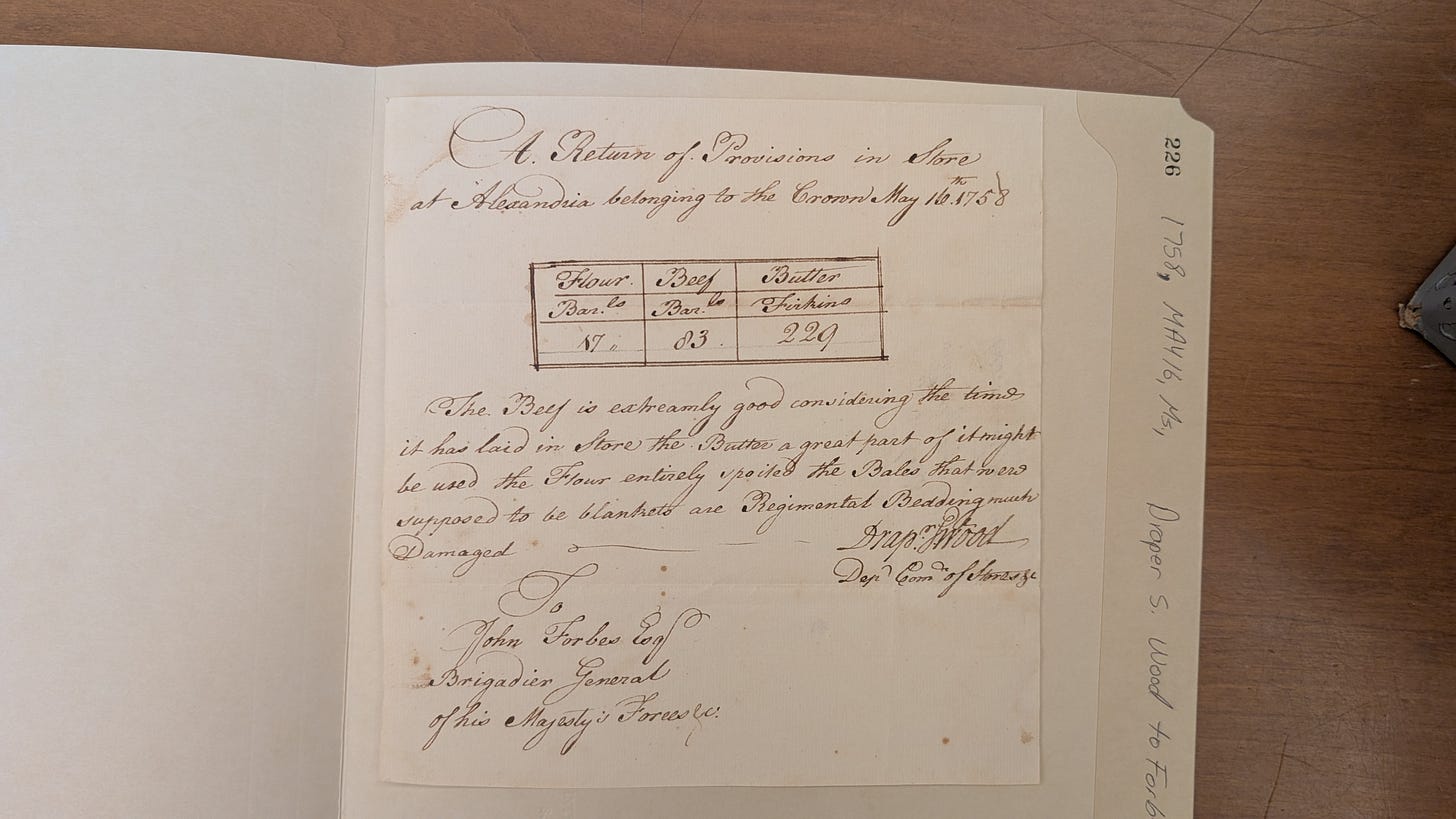You’re reading History’s Confluences, which features historical research, trip reports, book reviews, and public history opinions and analyses.
It’s no secret that the history field, which includes both academic and public history, faces challenges. Recent PhD graduates face decreasing opportunities for tenure-track jobs, many museums and historic sites are struggling with attendance struggles or declining visitation, and funding for all types of historic activities remains tight. Still, these challenges don’t mean that the study and interpretation of the past is dead. Amidst the negative news, there are reasons for hope. While some museums and historic sites are struggling, others are thriving. There are also many successful history blogs, podcasts, and videos. Undergraduate history majors, despite the challenges faced by their PhD counterparts, end up doing pretty well in the job market, showing that their skills are valued.
I have my concerns about the field’s future (a topic for another post), but it’s frustrating to encounter the fatalism that some people have about the study and interpretation of the past, especially when they don’t seem interested in doing anything to address these challenges. At a historical marker dedication this past summer, I was chatting with someone and mentioned that I serve on the board of the local historical society. “History’s so important “it’s sad that no one cares about it,” was her response.
I’d heard that line before, and I could tell that she wanted me to say something along the lines of “Oh yes, it is a pity, kids these days, etc. etc.” But I was in a debating mood, so I replied, “We’re lucky to live in an area with so many passionate history lovers. There’s plenty of people who care about history here and many opportunities to get involved,” noting the various local history museums, historic sites, and historical societies. She wasn’t happy with my answer and quickly ended the conversation.
Supporting the study and interpretation of the past has never just been the work of professional historians. Throughout the centuries, supporters of history have given their time, money, voices, and expertise to help make the field what it is today.
Saying “It’s sad no one cares about history” is not only inaccurate, it’s counterproductive and lazy. It gives cover to avoid having to do the actual work of supporting and advocating for the history field, it ignores any positive developments, and it erases the contributions of the people who are working to keep public interest in history alive.
For anyone who wants to support the study of the past and the sharing of historical research with the public, I compiled a list of ways to support history in 2025. Obviously, everyone’s situation is different, so not all of these options will be feasible for every reader. Likewise, the level of effort involved will vary from activity to activity and from person to person. The suggestions on this list aren’t going to solve all of the field’s problems, but, if enough people adopt them, they should hopefully make life a bit easier for the people working to research, document, and share the past.
Engage with an organization’s digital content
Many historic sites and museums have a digital presence, often some combination of websites, social media pages, YouTube channels, or digital exhibits; all of which take valuable time and effort to create and maintain. Likewise, many historians maintain a social media presence or run a blog/newsletter to share their work. So, if there’s a historian, historic site, history museum, or other history organization whose work you care about, make sure you engage with their content. Follow them on social media, and like and share their posts. If they have an online exhibit, visit it, and send it to others who might be interested. If a historian has written an article you like, share it on social media with a positive comment. This type of engagement shows that you think the work is worthwhile and it can help connect the individual/organization with new audiences.
A note about commenting on social media. Leaving a comment on a post can help boost its reach. However, please be cognizant of what types of comments you’re posting. Short notes about how you enjoyed a post, your personal connection to the topic, and links to other trustworthy sources are great. Long comments designed to show off your knowledge, off-topic content, and political rants are not. If you have an issue with a post, reach out to the organization or person directly via messaging or email. Angry comments are unhelpful and often counterproductive.
Visit
This one probably goes without saying; If a history organization offers in-person programming, take advantage of it and attend if you are able. Even if you’ve already visited a place, and gone on “the standard tour” there are probably many other experiences that justify a return visit. Historic sites and museums offer a variety of programs and events throughout the year including, but not limited to, behind-the-scenes tours, holiday programming, expert lectures, concerts and dances, markets, theatrical performances, and living history events. You don’t need to go to every event at every site you care about, but making an effort to visit, and bringing friends and family, can go a long way.
Make a donation/ Buy their stuff
The effort involved for this one depends on your personal financial circumstances and how much you wish to give. Existing on planet Earth costs money, and your favorite historic site or museum, even if a governmental entity owns it, probably relies on donations to fund at least part of its operations. Donations, even small ones, can make a huge difference in an organization’s ability to meet its mission.1

Many historic sites and museums also have shops. Doing part of your holiday shopping (or any type of shopping) at these places helps them raise the funds necessary to support their mission.
What about historians? If a historian has written a book you really like, buy it. In addition, with tenure-track PhD jobs declining, a growing number of historians are using outside writing whether through a blog or newsletter to both share their research and pay the bills. If you appreciate their work, purchasing a subscription to their digital publication can help fund their research and ensure that you can keep enjoying their findings, insights, and analyses.
Volunteer
Volunteers at museums, historic sites, and, in some cases, archives and libraries, provide a wide variety of services including giving tours, conducting educational programs, staffing information desks, overseeing gift shops, performing light maintenance, tending to historic gardens conducting historical research, and providing IT support. Some institutions even have volunteer archaeologists. Many organizations that participate in National History Day rely on volunteer judges to make the events a success. Not all volunteering needs to be in person. The National Archives Revolutionary War Pension Files Transcription Mission allows people to transcribe historic military records from the comfort of their homes.
Interested in volunteering? Many sites have a page on their website where you can get more information, or you can ask someone the next time you visit.
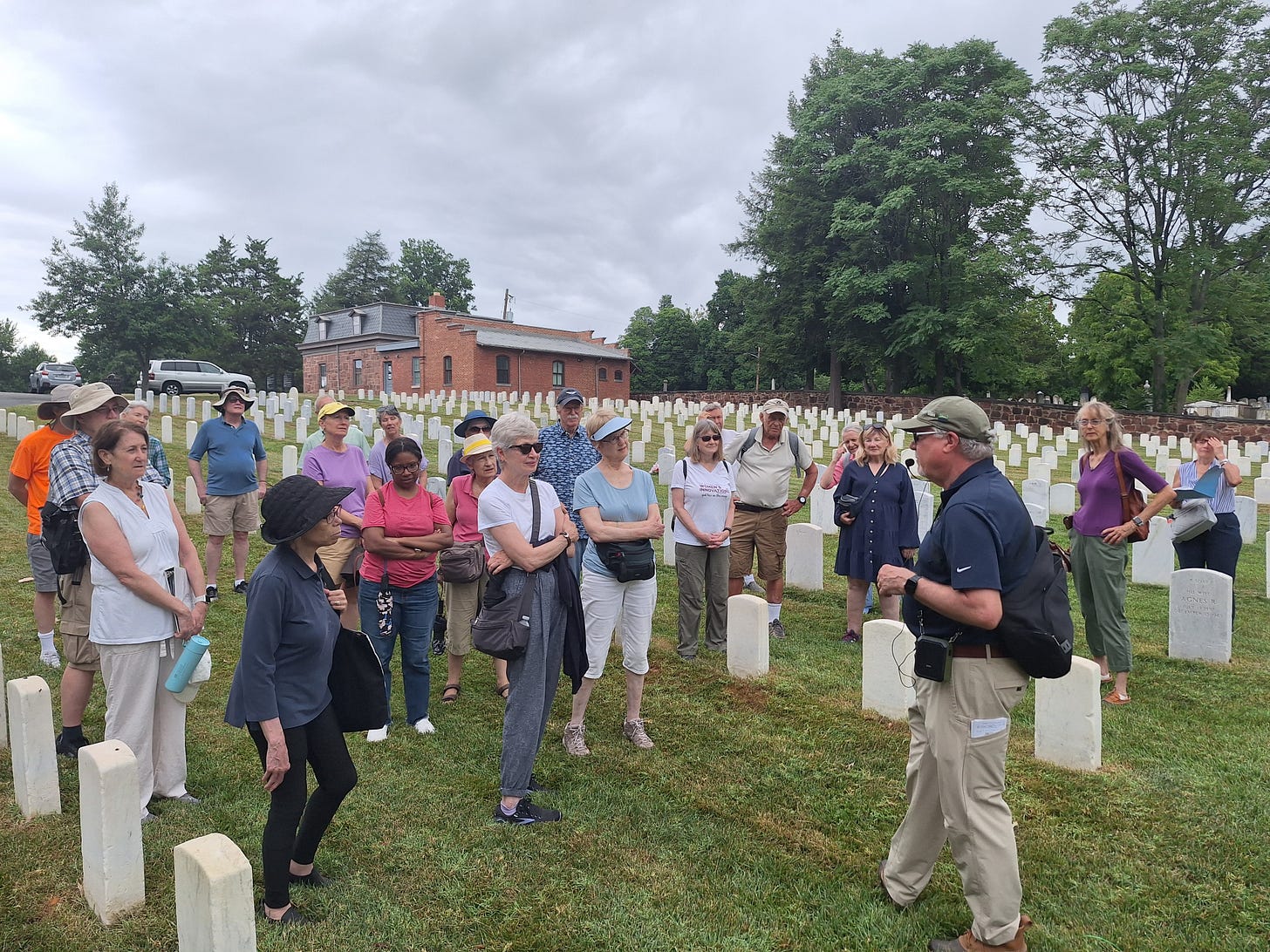
At many sites, the board of directors is also made up of volunteers. Alongside candidates with history backgrounds, potential board members with experience in fundraising, grant-writing, budgeting, marketing, and public relations are incredibly valuable. The amount of work done by a board member will vary. At some sites, the role is limited to scheduled meetings and general oversight, while at others the board takes a more hands-on role. I currently sit on the board of the Alexandria Historical Society and my duties include running all of our social media accounts, chairing on grant-giving committee, serving on the revenue committee, participating on the goals committee, moderating some of our events, and designing and distributing our bookmarks (and I’m not even the busiest person on our board).
Advocate
History advocacy can take many forms. It can involve writing your elected representatives to say you support giving more resources to local historic sites and history departments. It can involve testifying at a community meeting about key historic resources. It can involve filling out an online survey or attending a public meeting hosted by your local historic site. Good advocacy involves having a clear goal, being focused, and effectively making your case to decision-makers. Complaining about something on social media to your friends is not advocacy.
Research and share historical research
This last option is deceptively difficult. Anyone can publish a historical hot-take on social media, but creating a well-researched, engaging historical product, whether an exhibit, article, or book, takes time and effort. Historical research can be tough, and I’m not just talking about the struggle of finding relevant collections or reading barely legible 18th-century cursive on microfilm. Beyond examining sources, you need to be able to keep an open mind, be willing to update your ideas and beliefs based on new evidence, understand the limitations of the evidence you can find, and be able to take constructive criticism.
If you can see it through to the end, this work can be immensely rewarding and valuable to other historians and the public. If there is a topic you’re passionate about and you’re willing to familiarize yourself with historical best practices and accept constructive feedback, then you should go for it. There are many publications that will accept the work of historians without PhDs.
Work too important to past up
There are countless people, both paid and unpaid, working to research, document, and share information, insights, and analyses about the past. While the history field has its challenges, I’m heartened by the passion and dedication I’ve observed over the years. Still, history is a team effort and public support is critical. It’s up to all of us to find ways, large or small, to support the people and institutions that make up the history field and ensure that the study of the past continues to have a future.
Professionals and volunteers in the history world, is there anything I missed? Send me a message and I’ll share your ideas in a future post.
All views expressed in this article are my own and do not represent the views of any of my employers, present or past.
Obligatory disclosure. I’m on the board of the Alexandria Historical Society and we receive no government funding. Donations are a big deal for us.

